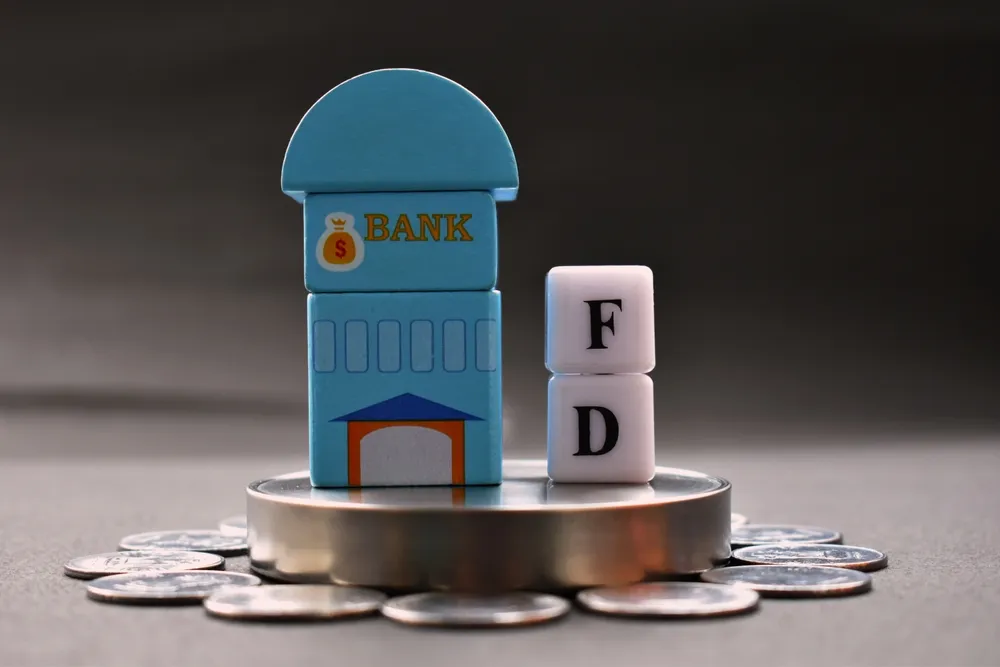Personal Finance News
Is it a good time to invest in non-convertible debentures (NCDs) amid market correction?
.png)
4 min read | Updated on February 17, 2025, 18:04 IST
SUMMARY
As stock markets face continued sell-offs, some investors are considering non-convertible debentures (NCDs) for stable returns. NCDs offer fixed interest rates and come in secured and unsecured types. Regulated by SEBI, they provide a steady income stream with higher interest than fixed deposits, though careful assessment is essential before investing.

Non-convertible debentures (NCDs) are a financial instrument used by companies to raise long-term capital. | Image: Shutterstock
Domestic stock markets have been witnessing continuous sell-off in the last few months. The equity benchmark index NIFTY50 has lost almost 900 points, while the SENSEX has shed nearly 2,850 points during this period. Continued sell-off by foreign investors, a slowdown in companies’ December quarter earnings and global uncertainties after Donald Trump’s return as the US president weighs on investor sentiment.
Given the current market condition, many investors may be considering shifting to comparatively low-risk instruments like non-convertible debentures (NCDs), which offer fixed returns over a longer duration.
Non-convertible debentures (NCDs) are a financial instrument used by companies to raise long-term capital. NCDs fall into the category of debt instruments. Unlike convertible debentures, they cannot be converted into shares.
NCDs are usually issued by big corporations, financial institutions or non-financial institutions that want to raise capital but do not want to dilute their equity stake. They raise money from borrowers for a fixed duration in exchange for a promise to pay them interest at a pre-decided rate. The interest rate on NCDs is also known as the coupon rate.
For instance, if an investor buys an NCD worth ₹1 lakh issued by a company ABC with a tenure of 7 years and a coupon rate of 8%, annual interest of ₹8,000 per annum for 7 years will be received, and the principal amount of ₹1 lakh will be paid at the end of 15 years. Also, investors can re-invest the interest amount and take a higher payout at the end of 7 years along with the principal amount.
Types of NCDs
There are two types of NCDs that an entity can issue in the Indian securities market – secured and unsecured.
Advantages of investing in NCDs
NCDs offer comparatively higher interest rates than fixed-income securities like fixed deposits (FDs) or bonds and could be more attractive for investors with limited risk appetite.
The Securities and Exchange Board of India (Sebi) regulates the issuance of NCDs. Before issuing NCDs, the issuer must fulfil certain requirements, such as disclosing financial statements and risk factors. This makes these instruments safe avenues for investment. Investing in NCDs can provide a steady income stream for investors as they have the option to receive periodic interest payments.
Key factors to know before investing in NCDs
| Company name* | Weighted average price | Weighted average yield (YTM) | Maturity Date |
|---|---|---|---|
| Larsen And Toubro 7.2% | 100.1106 | 7.1755% | 22 Jan 2035 |
| Adani Enterprises 9.65% | 100.3750 | 9.4301% | Sept 2027 |
| Indian Oil Corp 7.25% | 100.1593 | 7.200% | 06 Jan 2030 |
| Piramal Capital & Housing Finance 9.3% | 99.7233 | 9.4419% | 06 Jan 2027 |
Related News
By signing up you agree to Upstox’s Terms & Conditions
About The Author
Next Story


